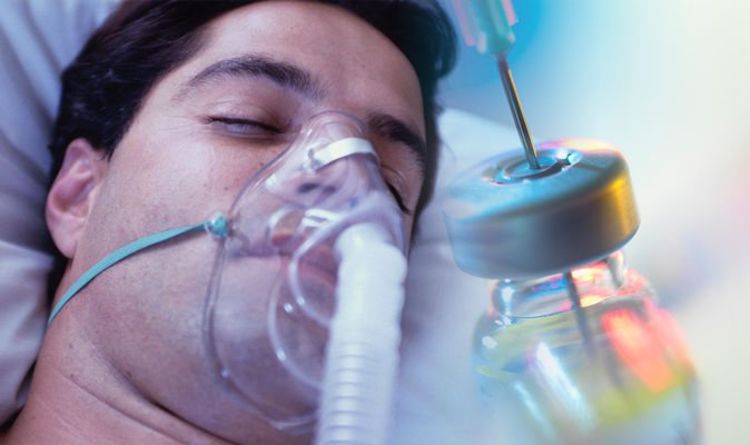
Hydrocortisone, an anti-inflammatory drug, could save one in every 12 patients, according to new research conducted by Imperial College London and the Intensive Care National Audit & Research Centre. The researchers discovered that patients receiving intensive care who were treated with hydrocortisone for seven days had a 93 percent chance of a better recovery compared to patients who were not treated with the steroid. The benefits of hydrocortisone were announced alongside analysis from seven trials involving three different types of steroids, including dexamethasone which has already been found to reduce mortality and is widely used.
The studies found that treatment with one of the three steroids: dexamethasone, hydrocortisone or methylprednisolone led to an estimated 20 percent reduction in the risk of death.
Professor Anthony Gordon, who led the research into hydrocortisone, said: “The studies published today show that we now have more than one choice of treatment for those who need it most.
“Steroids are not a cure, but they help improve outcomes. Having a choice of different types of steroids, all of which seem to improve patient recovery, is great as it helps ease the problem of drug supply issues.”
How did the researchers gather these findings?
The study consisted of 403 patients of mixed ethnicities from across the world for the hydrocortisone study, including patients from 88 hospitals in the UK.
READ MORE: Coronavirus: Seven lesser-known signs you’ve been infected by the deadly virus
“Just as we did with dexamethasone, the NHS will now take immediate action to ensure that patients who could benefit from treatment with hydrocortisone do so, adding a further weapon in the armoury in the worldwide fight against COVID-19.”
Professor Martin Landray, one of the chief investigators of the Oxford University-based RECOVERY trial, which looked at dexamethasone, said: “The results are clear: Among critically ill patients with COVID-19, low-dose corticosteroids such as dexamethasone significantly reduce the risk of death.
“Since the emergence of COVID-19, the search has been on for treatments that can improve survival. Corticosteroids are inexpensive and widely available.
“This additional evidence of their efficacy is therefore particularly welcome as the treatments can be used to save lives worldwide.”
The RECOVERY trial, launched in March, was one of the world’s largest randomised, controlled trials for coronavirus treatments; testing a range of potential therapies.
Dexamethasone was hailed as a breakthrough as it was the first drug shown to reduce deaths from the coronavirus.
In the trial, it cut deaths by about one-third in patients who were on ventilators because of coronavirus infection.
What are the main symptoms of coronavirus?
According to the NHS, The main symptoms of coronavirus are:
- A high temperature – this means you feel hot to touch on your chest or back (you do not need to measure your temperature)
- a new, continuous cough – this means coughing a lot for more than an hour, or three or more coughing episodes in 24 hours (if you usually have a cough, it may be worse than usual)
- A loss or change to your sense of smell or taste – this means you’ve noticed you cannot smell or taste anything, or things smell or taste different to normal.
Most people with coronavirus have at least one of these symptoms,” says the health body.
How to respond
According to UK health advice, if you have any of the main symptoms of coronavirus:
- Get a test to check if you have coronavirus as soon as possible.
- Stay at home and do not have visitors until you get your test result – only leave your home to have a test.
Anyone you live with, and anyone in your support bubble, must also stay at home until you get your result.
A support bubble is where someone who lives alone (or just with their children) can meet people from one other household.
